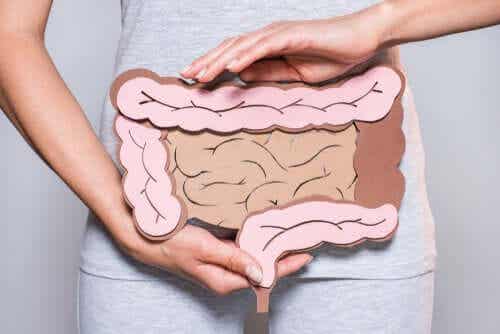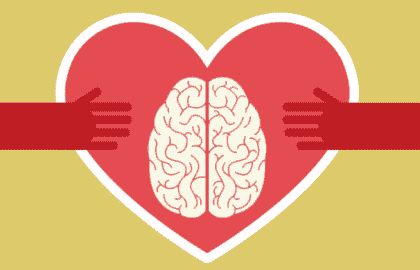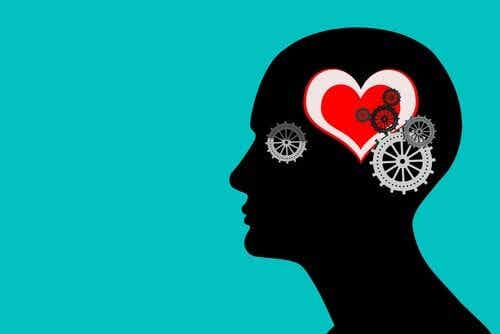Science has identified a link between the brain and gut health and functioning. In this context, the concept of mental digestion refers to the subjective experiences absorbed and which result in intestinal problems.

Last update: February 18, 2020
The digestive system is very reactive to emotional changes. It can happen that a person gets too much impressed and vomits or that they feel nervous and have a stomach ache. For this reason, e in the face of the widespread problem of slow digestion, there has been talk of mental digestion.
Today we are aware of the very strong link between the intestine, therefore of its well-being and functioning, and the brain. It is not uncommon to refer to the gut as the second brain. It is the only organ in the body that functions absolutely independently; that is, it does not need the "permission" of the brain.
The intestine also obeys the enteric nervous system (ENS), which is a derivation of the autonomic system. It has its own neuronal circuits, but communicates with the brain via the sympathetic and parasympathetic systems. This complex structure causes the mind and digestion to have a special bond, which is why we speak of mental digestion.
There are so many mortals who cannot digest happiness! Happiness is not an easily digestible thing; it is, more than anything else, very indigestible.
-Miguel de Unamuno-
Mental digestion
A very close link has been identified between the way we digest thoughts and emotions and the way we digest meals. In addition to this, it often happens that unprocessed experiences on a mental level end up reflecting on a greater difficulty in adequately digesting a food. We could say that proper mental digestion also depends on proper intestinal digestion.
At the same time, the opposite occurs: digestive problems end up visibly altering our mood. This is largely due to the fact that 90% of serotonin is processed by the digestive system, while only 10% by the brain.
Remember that serotonin is a neurotransmitter with a significant impact on our mood. High levels of serotonin presuppose a state of happiness; low levels, on the other hand, a negative mood.
As we can see, there is a clear connection between mental digestion and food digestion. One influences the other and they determine each other.
Constipation and mental digestion
One of the problems most often associated with poor mental digestion is constipation. It is interpreted as a signal that there are ideas, emotions or experiences from the past that are "stuck". In these cases the person clings to the situation and refuses to let it go.
It is not uncommon for people with constipation to spend time mulling over something that happened the day before, without getting rid of it. It can be a belief, a goal, a wound, or a material object.
The point is that everything comes back over and over again, with no progress on it. As previously said, we can say that constipation is typical of those who tend to obsess.
Sometimes, constipation is also linked to unspoken words. The person has stopped expressing what they think or feel out of fear or convenience, but the silence begins to become a self-inflicted punishment, which then results in a digestive problem. This malaise is also common in those who tend to always save for unfounded fears about the future.
Diarrhea and emotions
Dr. Megan Rossi, Australian intestinal health specialist, indicates that one of the main factors observed in patients with intestinal problems is a high level of stress.
He also claims that one of the recommendations he gives to those who seek his advice following digestive problems is to do 10 to of meditation a day. This ends up having a positive effect on health.
Diarrhea is associated with the direct rejection of an idea or a felt feeling or with a decision already made. The mind reacts by trying to get rid of this aspect as soon as possible, and this is reflected on the body with a constant evacuation. That is to say that an incorrect mental digestion ends up reflecting on a deficient intestinal digestion.
Mentally and physically, diarrhea is the opposite of constipation. In this case, there is a desire to quickly get rid of something that causes rejection and guilt. The subject does not want, cannot or does not know how to accept that part of himself, which ends up expressing itself on a physiological level.
In light of the above, it pays to pay a little more attention to our digestive symptoms. Often, in fact, they can be the manifestation of an emotional malaise. It is about exploring and detecting the problem that we cannot digest… and then proceeding with adequate mental digestion.


























